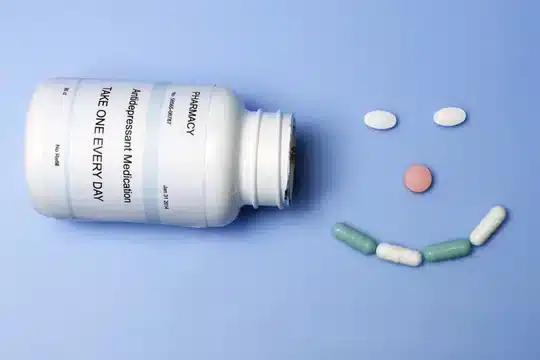We all tend to handle mental health challenges in our own way. This means that while some people can be prescribed a course of antidepressants and find that it does an effective job of lifting their mood you might be someone who finds that fails to provide a solution.
If you are getting frustrated by the lack of positive response to the drugs you have been prescribed you might be someone who has treatment-resistant depression.
When you find that your symptoms haven’t improved by taking antidepressants you will most likely have to consider alternative options and treatments in order to improve your symptoms and boost your mood.
Here are some pointers on your potential treatment options when you find that antidepressants are not working.
Get a second opinion
If you are found to have treatment-resistant depression you should consider talking to a treatment center or alternative medical professional for a second opinion and guidance as to what options you have.
The time to consider this course of action would be when you find your symptoms are not improving or your depression keeps returning.
There are a number of potential treatment options to consider.
Medication could still work
It is worth saying that although you have not responded to the antidepressants prescribed it could simply be a case of having not found the correct dosage level yet or a combination of medications might deliver improvements.
There are different types of antidepressants available. Ask your medical provider about the various options available.
Psychological counseling could prove beneficial
Aside from medical intervention, it has been shown that psychological counseling can work well for treating depression.
It can really help to talk through your issues and concerns so that you better understand your behaviors and learn techniques to help you cope better when it comes to life’s challenges.
This form of therapy can also be used to show you some useful strategies that you can deploy to resist depressive symptoms and keep your emotional trauma at more manageable levels.
Cognitive Behavioral Therapy (CBT) and mindfulness are two prime examples of psychological counseling methods that can work when antidepressants don’t.
CBT works by addressing your thoughts and feelings and altering your distorted or negative thinking patterns. The skills you pick from these CBT sessions can often help you feel like you have more control of your mental health.
Mindfulness is also a simple but effective concept. The fundamental aspect of this treatment option is to teach you to pay attention to your thoughts and feelings in a less judgmental way.
Other procedures available to treat depression
If you find that the medication and psychotherapy treatments mentioned are not having the desired impact you still have other options to consider for treating your depression.
Additional treatment options include Electroconvulsive therapy (ECT), and Repetitive Transcranial magnetic stimulation (rTMS). Neither of these options would be the initial treatment option suggested but they could be a consideration if you find that other methods are not improving your symptoms.
The best course of action is often to talk to a treatment center that has the experience and knowledge to be able to analyze your depressive symptoms and suggest a viable course of action to help you find a positive solution.

